Kate Lynch, a.k.a. Agent Lynch, opted for an unusual change in career: She swapped an austere lawyer’s robe for a dazzling Burlesque show costume. After graduating in law and a stint into the advertising industry, Kate’s intriguing similarity to English actress and Emma Peel performer Diana Rigg led her to pose in 60’s pin-up shoots where she discovered her interest in the art of Burlesque. Starting off with a Burlesque dancing hobby on the side of her job, she quickly realized that more time needs to be invested to make this a career. She quit her demanding advertising job in order to work as a PA which guaranteed no overtime, so she could sacrifice her evenings to her real passion.
Apart from her love for glittering stage outfits, which she mainly creates herself, Kate also has a fondness for 60s vintage clothing and furniture. We paid Kate a visit at her Dalston-based home earlier this year, in the run-up to her show Purple Rain.
In a quiet leafy street we discover the under ground flat of a beautiful Victorian house, where Kate and her boyfriend are sharing their lives within a vibrant mixture of Kate’s 60s furniture, piles of stage costumes, Matt’s huge record collection and their two tiny cats. On a freezing cold Saturday morning we’re finding out about Kate’s way into the Burlesque scene and the precarious situations this extraordinary job involves at times.
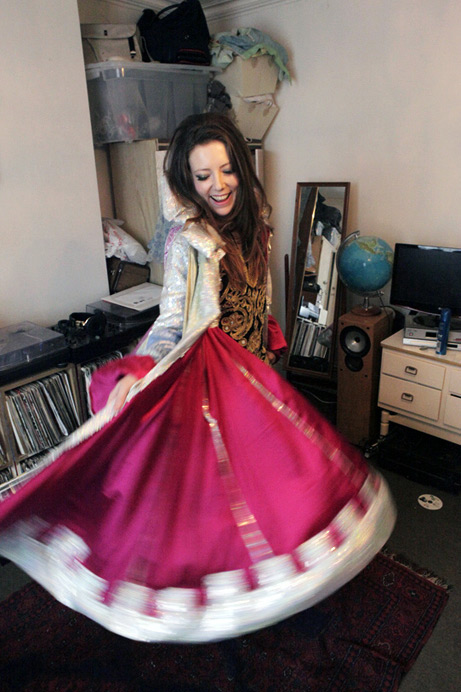
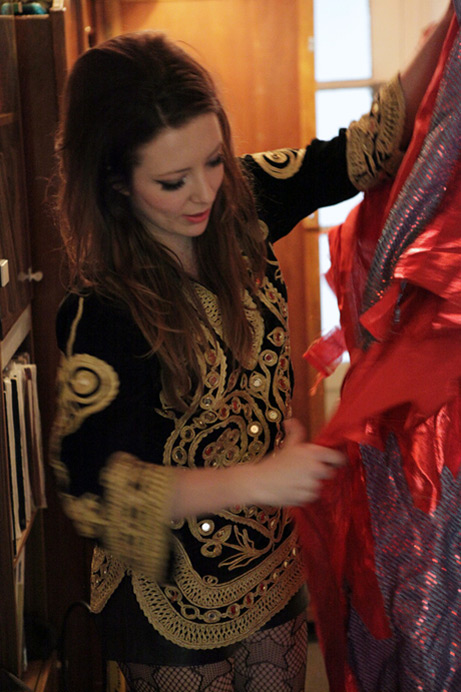
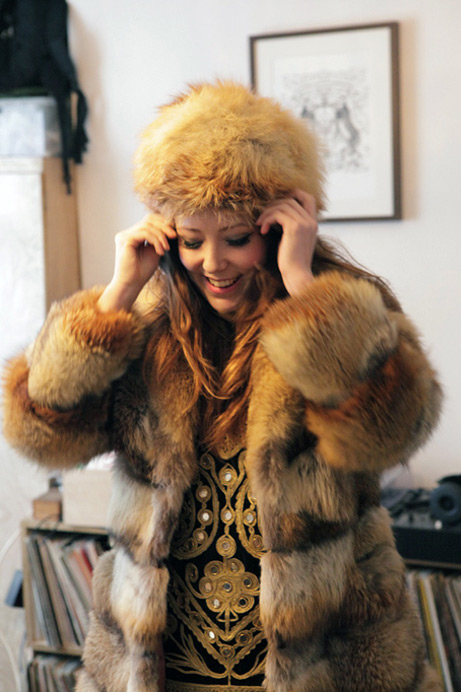
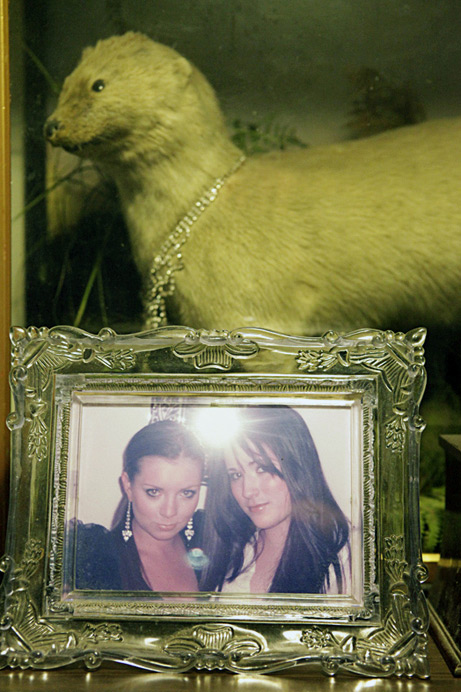
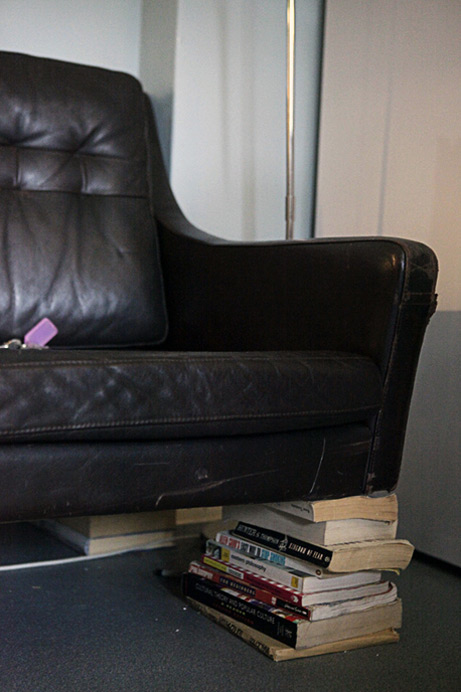
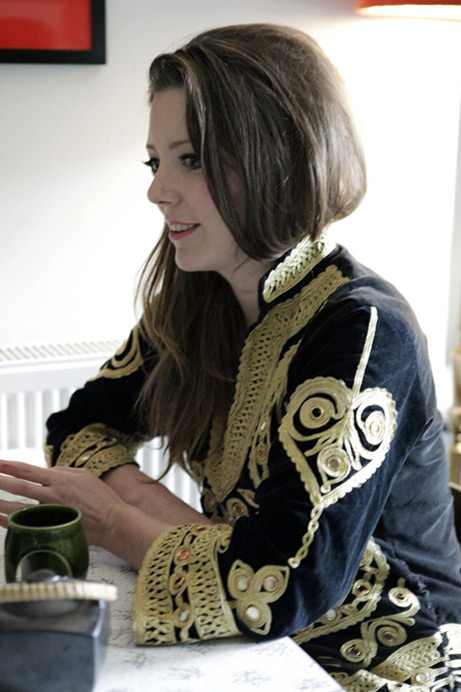
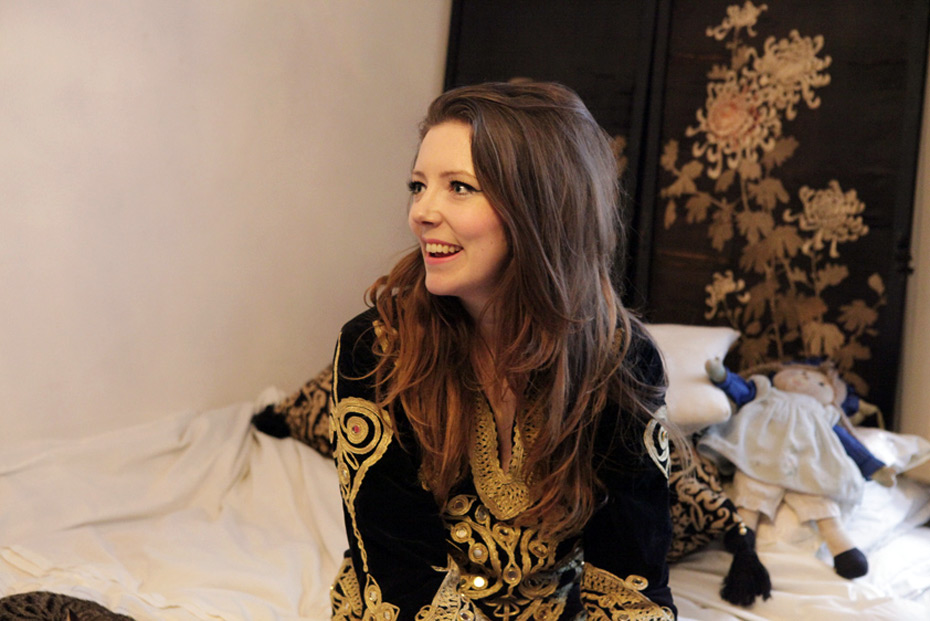
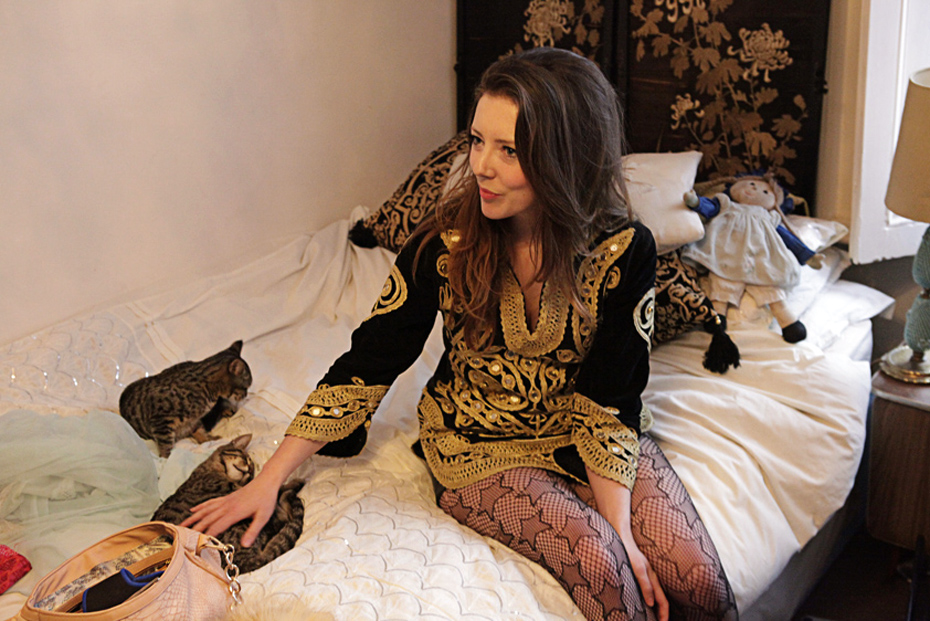
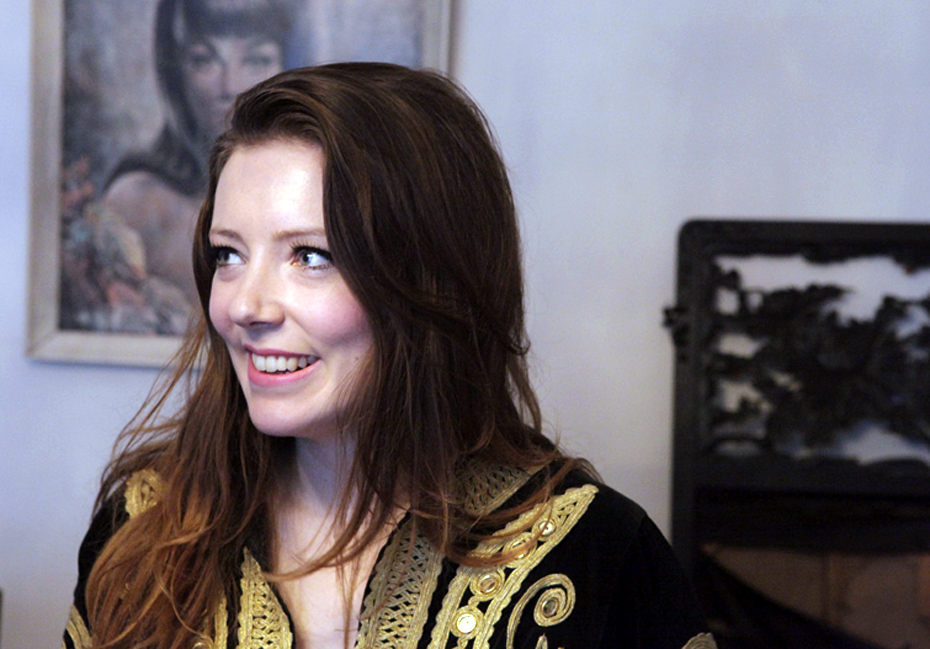
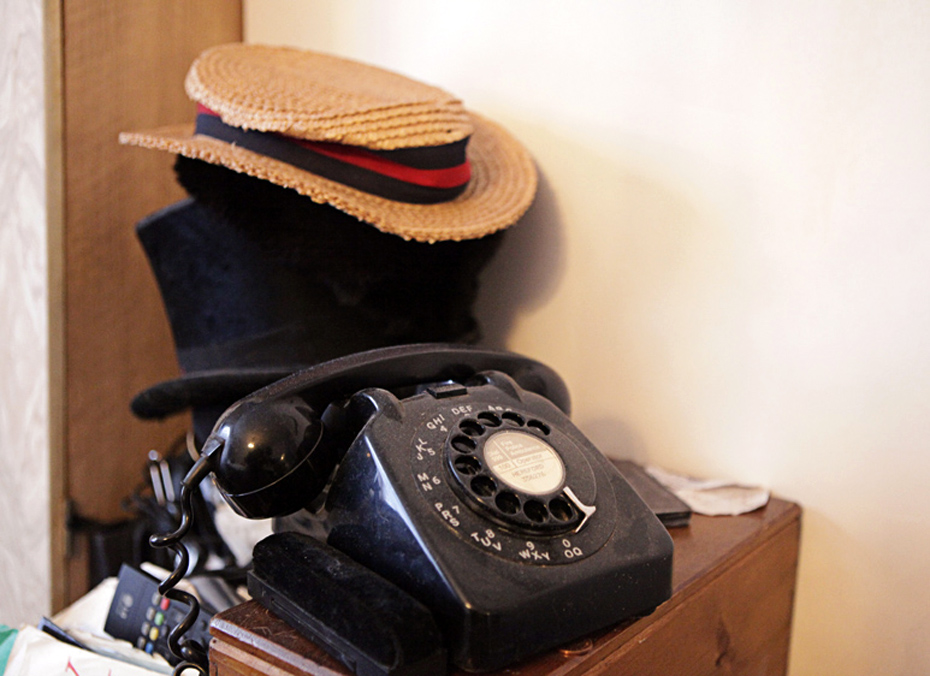
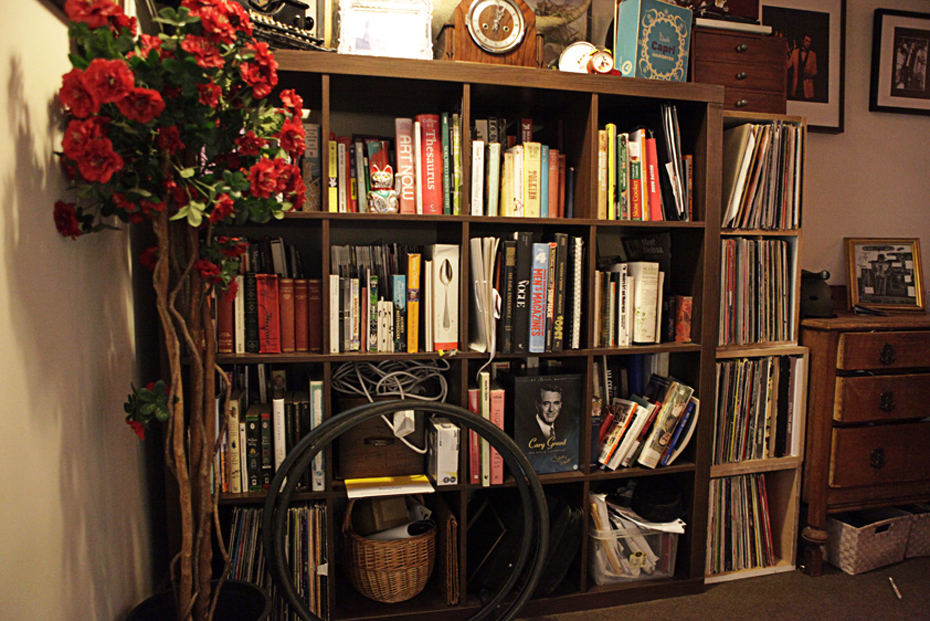
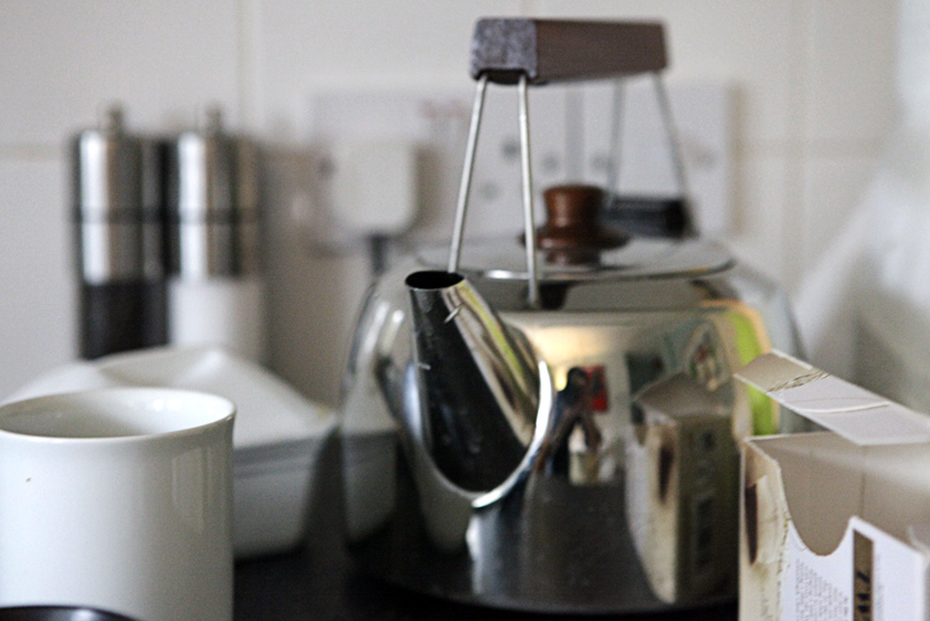
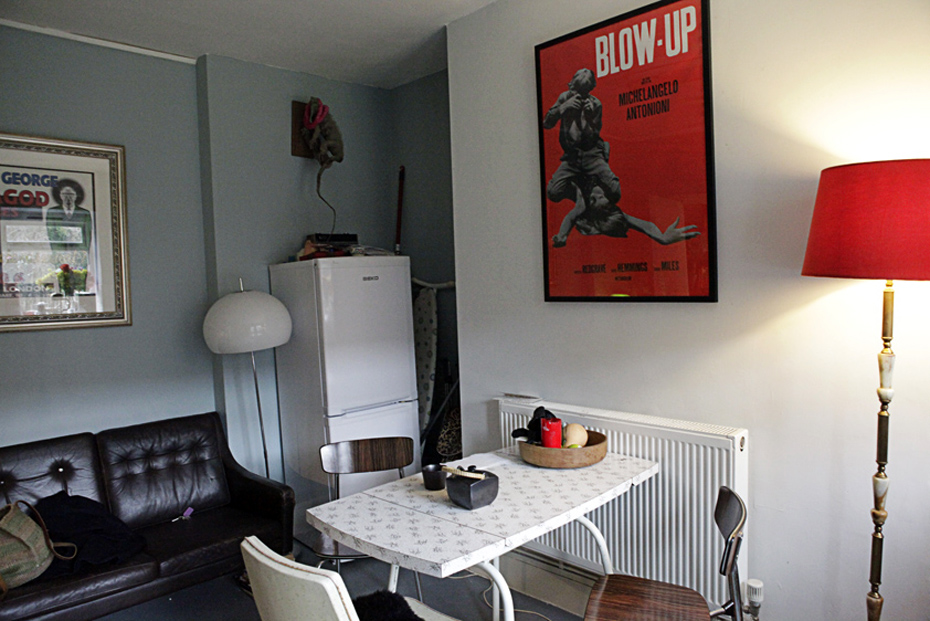
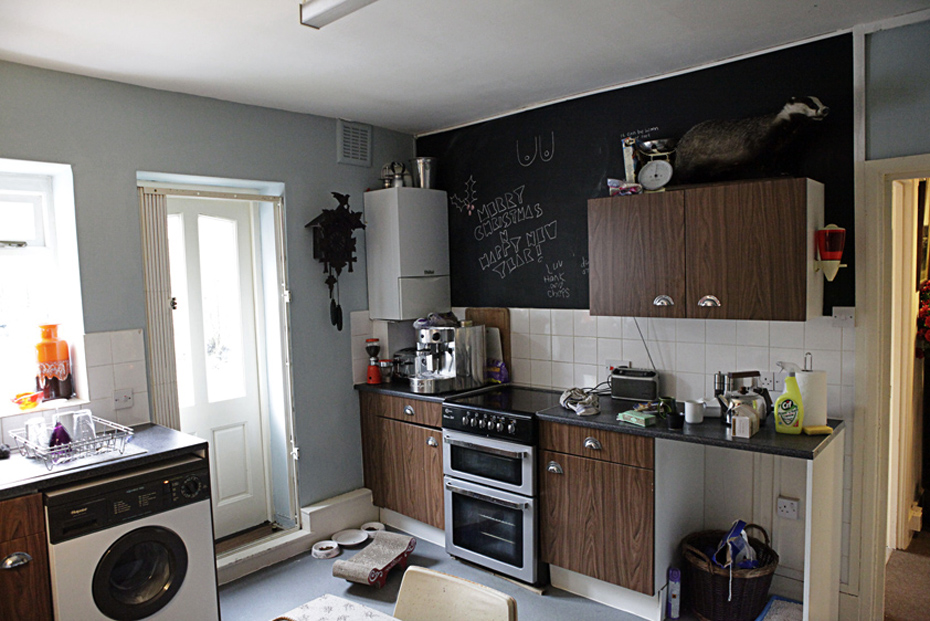
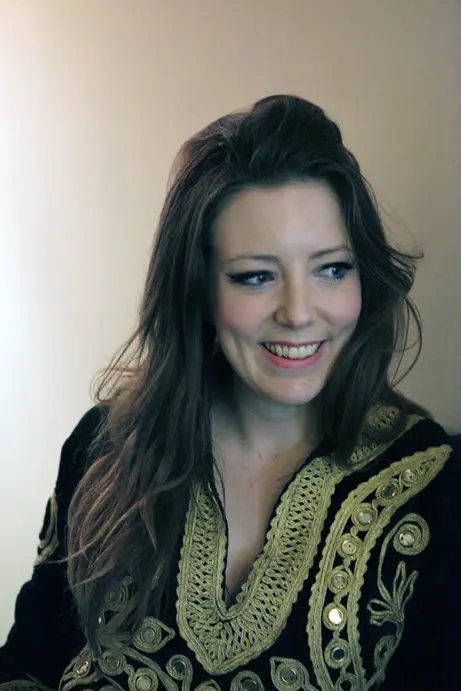
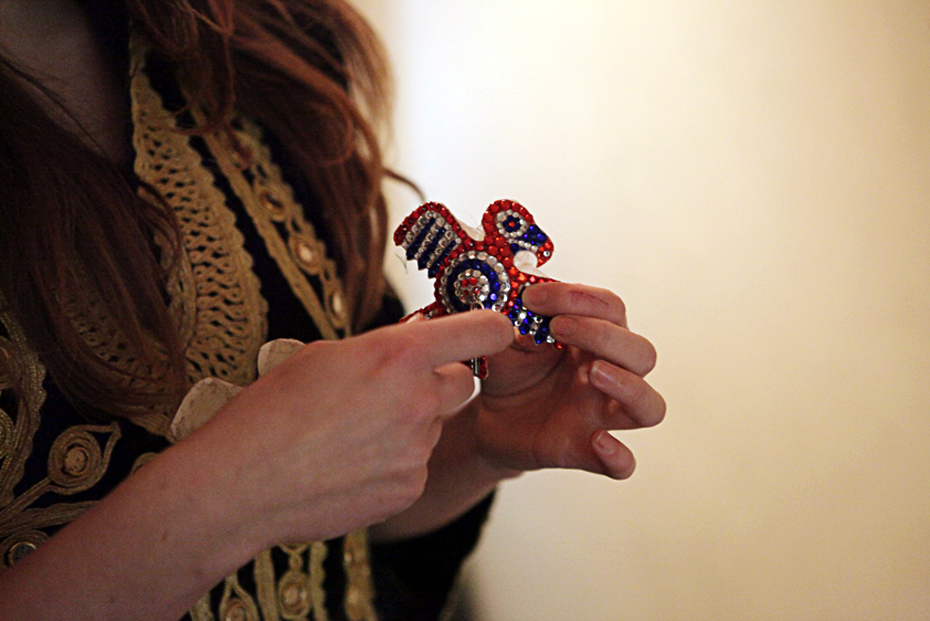
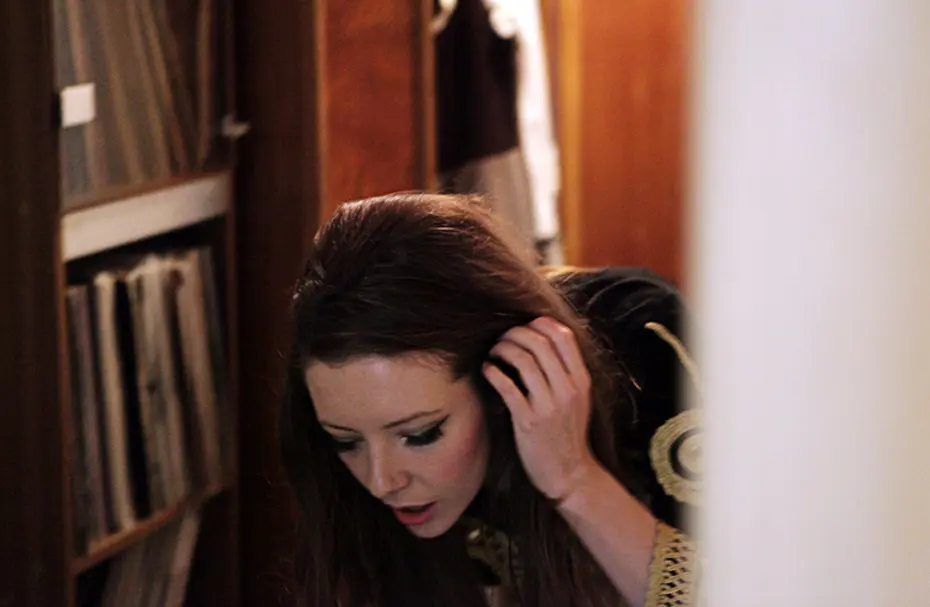
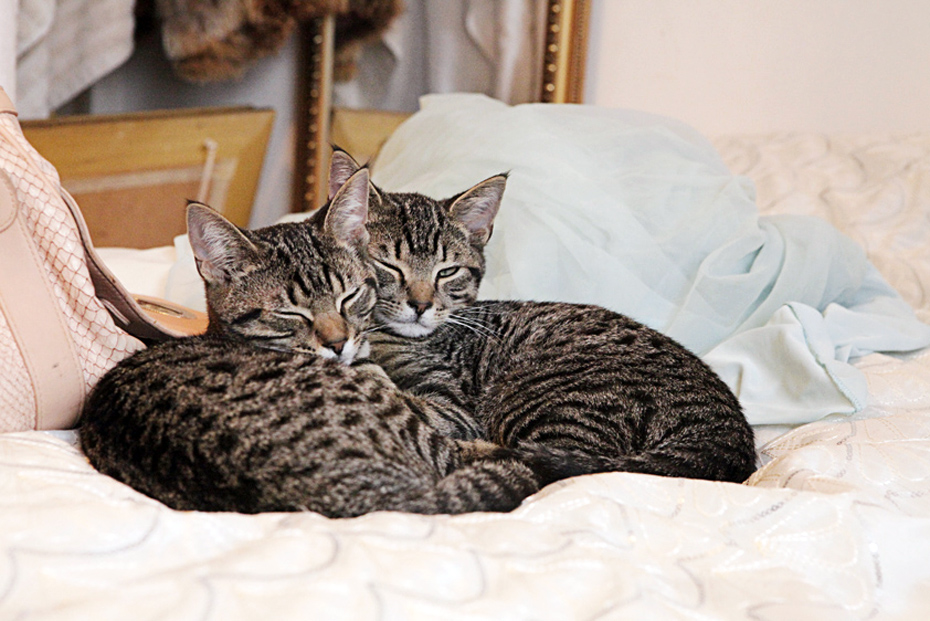
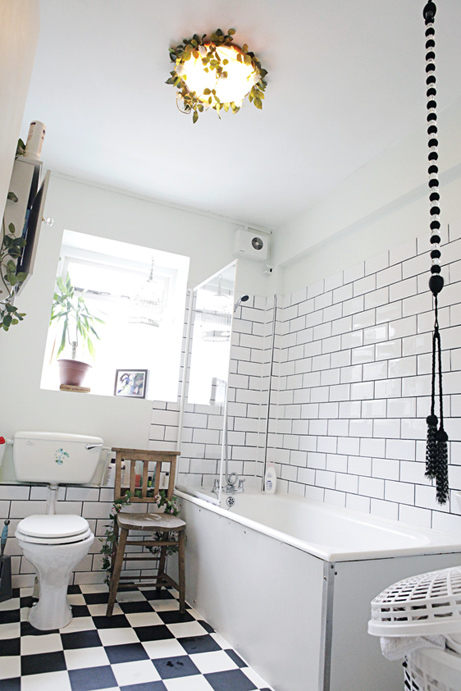
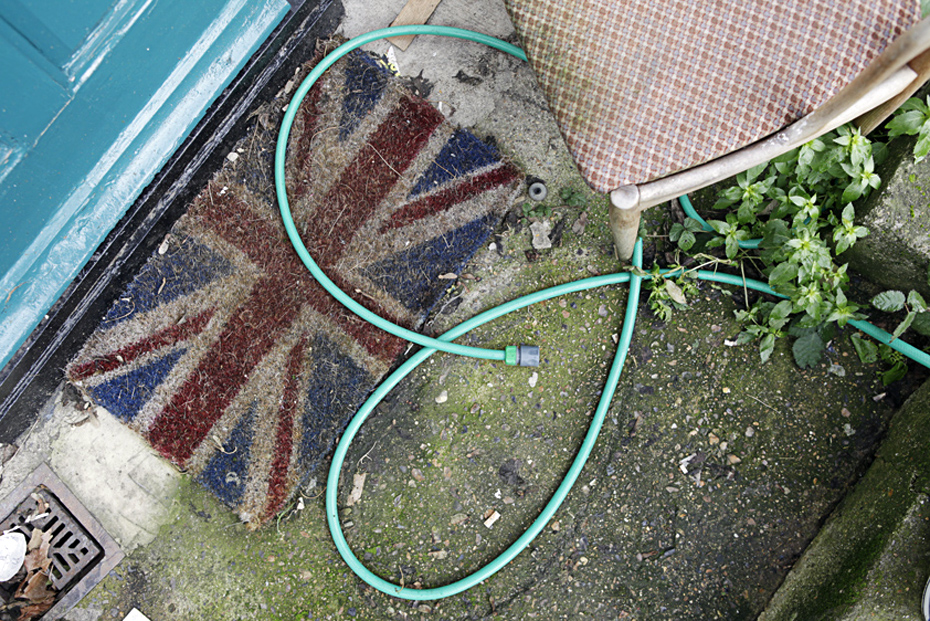

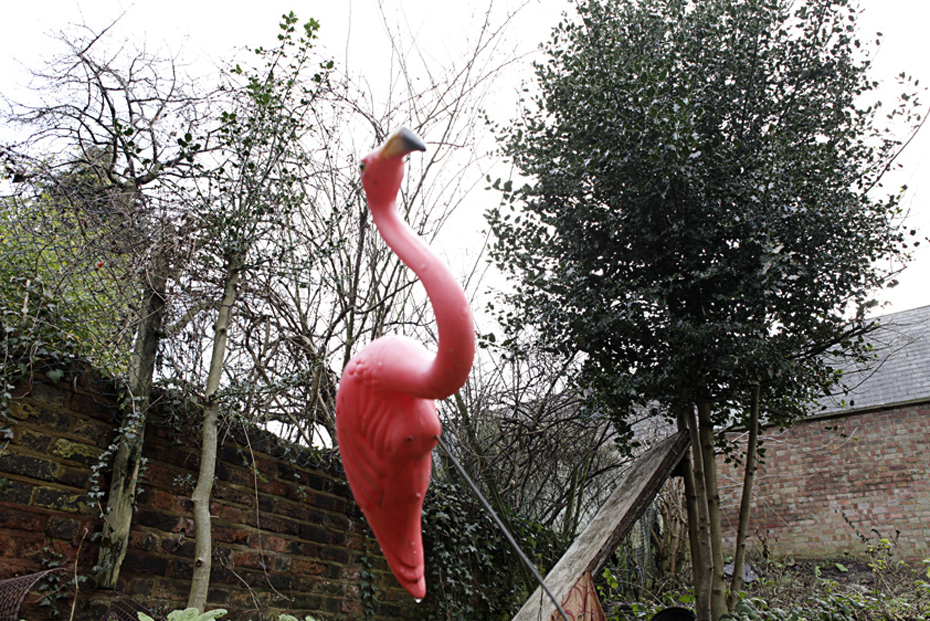
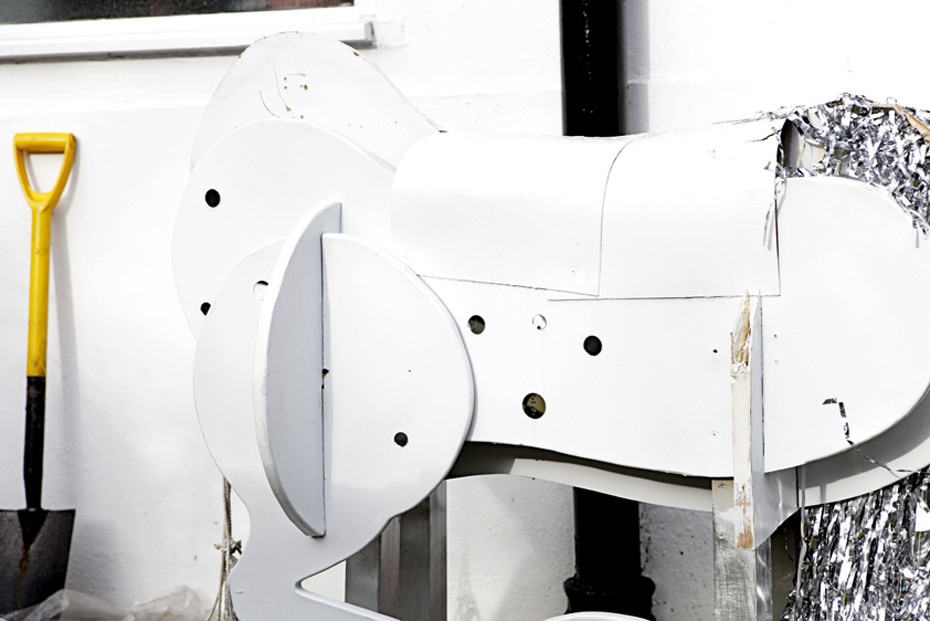
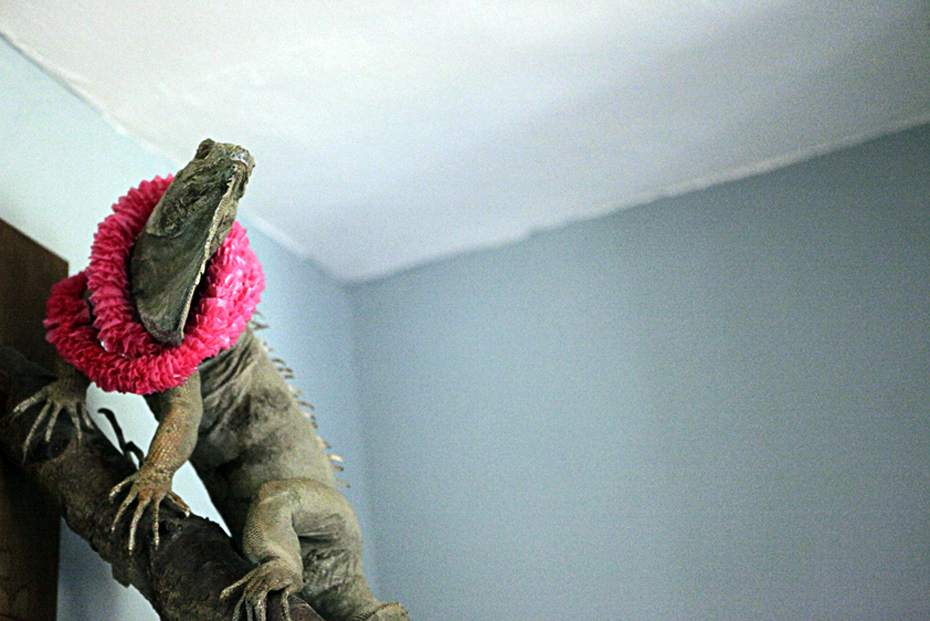
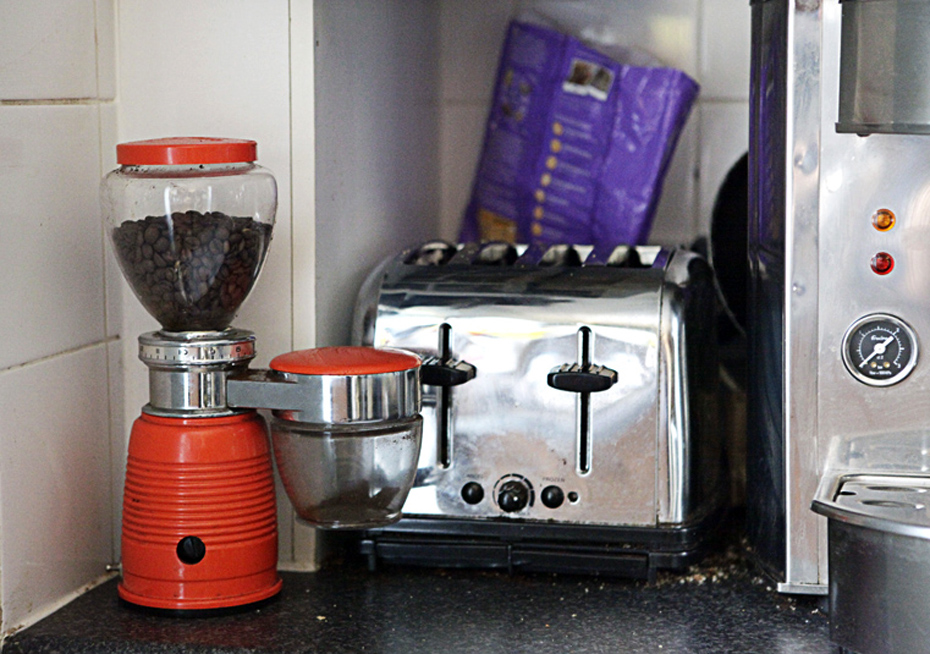
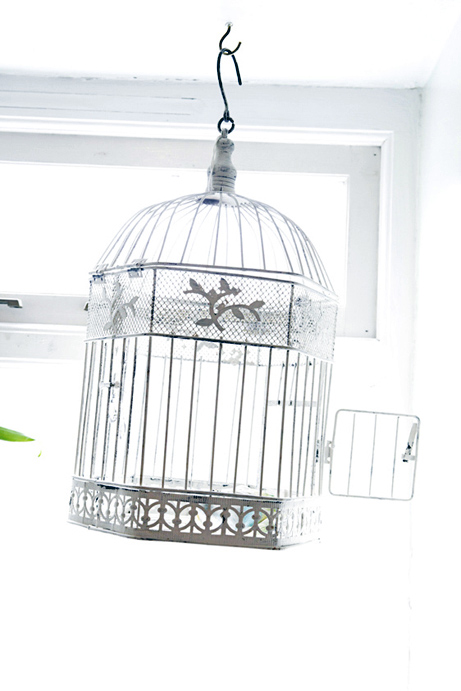
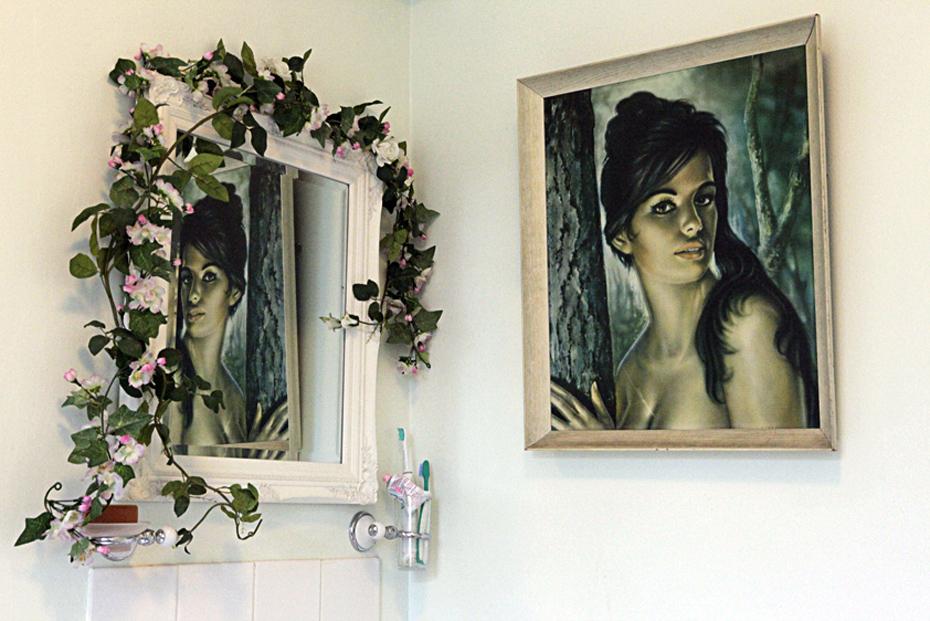
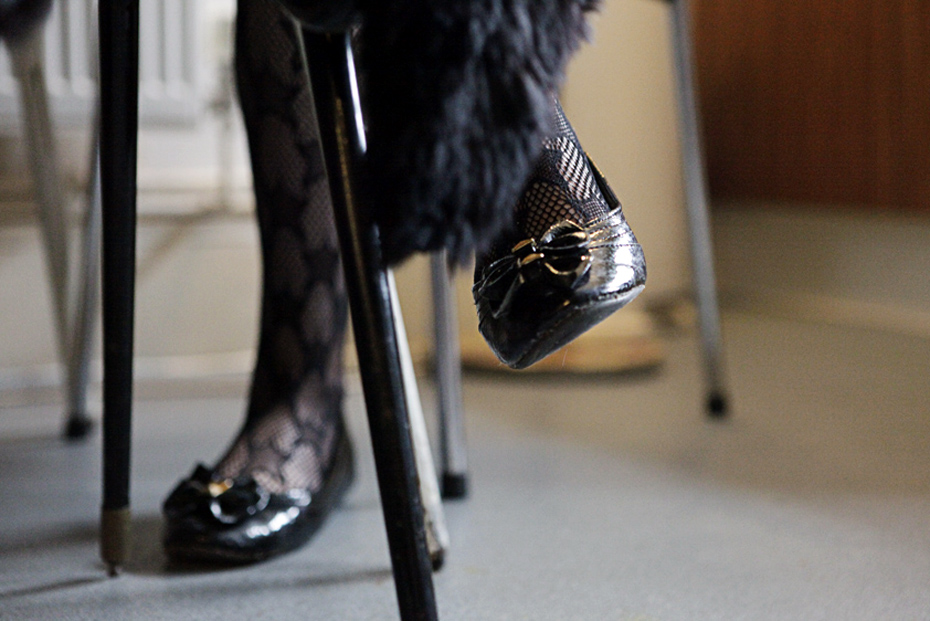
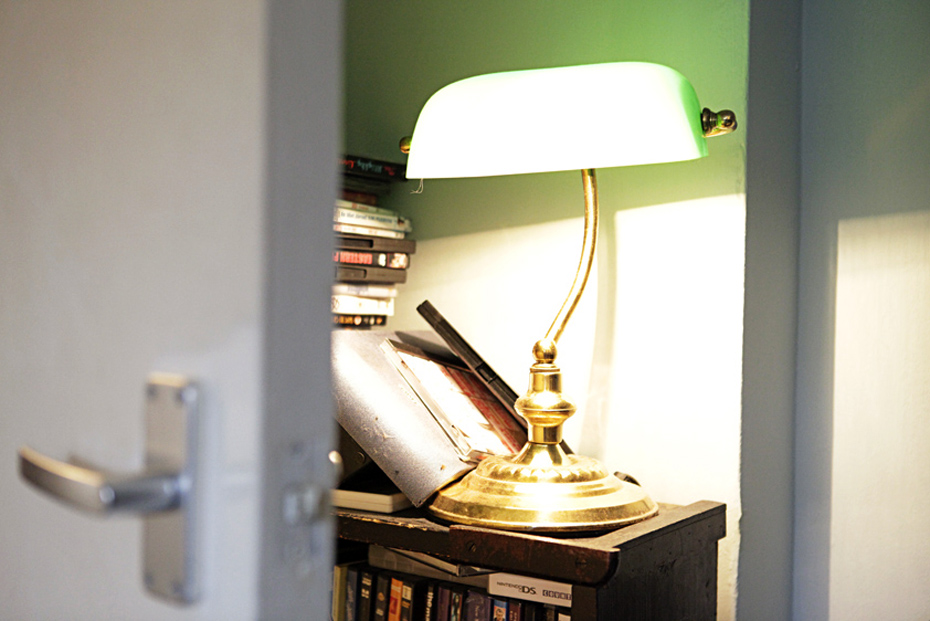
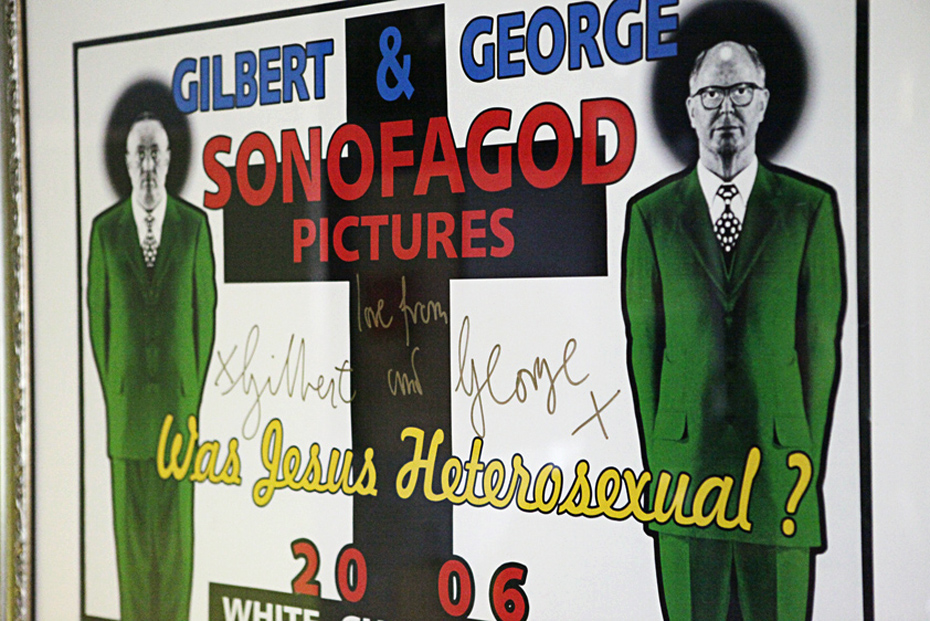
Where do you come from and when did you decide to go to London?
I was born in Newcastle, which is in the North of England, and I went to Bristol University when I was 18. When I graduated it just seemed like the natural step, going back to Newcastle didn’t really appeal and London did.
Why did you stay?
London has got such a great energy. I don’t think I really figured out who I was and what I wanted to do until I came to London and it was through the amazing nightlife in London how I ended up being a Burlesque dancer. It has such a vibrant cultural scene, it’s just a really great place to be. I think it’s only probably living in London or somewhere like New York where I could live as a Burlesque dancer so it’s a good place to be.
I heard you’re quite obsessed with Dalston.
I love Dalston. I’ve always lived East. I first moved to Bethnal Green which I really liked and then I moved to Mile End and then Dalston. I heard how interesting things are going on and the rent was a bit cheaper that period when I first moved and yeah, I like the vibe here, you can buy everything in the market, it’s a good little village really.
Dalston went through a huge transition over the last years. Italian Vogue described the area as London’s coolest creative hotspot. What do you think of this development?
It’s this thing of all the artists moving in, which attracts more people moving and then that kind of scene, that was here and lived here in the first place, dies. I hope that doesn’t happen too quickly. It’s still a bit dangerous. There was a drive-by shooting last year, which I saw, which was a bit scary, but there are some really nice places popping up and independent coffee shops and restaurants and it’s got a nice feel. It’s been a slow process. When I first moved here it wasn’t as much the hot place to be, there wasn’t a huge amount going on, but now it’s booming.
Which are your favorite places in London?
I really love Church Street in Stoke Newington, it’s really nice. I’m wandering along on Saturday and Sunday and Clissold Park is really great too. I really like this café around the corner called Tina We Salute You, and funny enough they have all these paintings by Lynch, who is the painter who inspired my stage name. I like going in there because they’ve got all my favorite paintings on the wall and they do amazing coffee.
Where did your fascination for the 60s originate?
It definitely originated when I was a teen, probably early teenager, watching Bond films and that kind of glamor really appealed to me. Then when I went to Bristol, there was a vintage clothes shop and I bought this 60s dress and really loved it and just went from there. So I’ve been pretty hardcore 60s about five or six years but I’m going a little bit for 70s now. Natural progression.
When did you get into Burlesque?
I graduated in law but I didn’t really wanted to be a lawyer, so I went into advertising and was an account executive and started to work for Microsoft. But I was increasingly dressing in vintage clothes and when I went to a cabaret night, I got approached by a photographer. He said I look like Emma Peel from The Avengers, or Diana Rigg, and whether I’d like to model for him. I was really flattered, I never modeled before and I quite fancied having some vintage pictures, so I started doing pin-up shoots. He photographed lots of Burlesque dancers and it just progressed from there. I did my first show four years ago and I just haven’t looked back since. I love it. Then the Burlesque scene was quite big, it was quite established. The majority of Burlesque was very sort of 30s to 50s influenced and I really loved the 60’s. Initially people went up “Oh, I’m not sure how the 60s styling is going to work with Burlesque”, but this is where all my ideas came from, so I just thought I’m gonna go there and I had an idea about doing an act to Serge Gainsbourg, to his song called “Intoxicated Man”, and it was a very simple routine, as I’m not from a dance background.
How did you practice for your first shows?
There was a guy who was working at Bethnal Green Working Men’s Club, which is the first club that I worked for. He actually studied dance at university, so he used to help me choreograph my routines. I had the ideas and the concepts but I didn’t necessarily know how to translate that into movement on the stage. He really helped me, he used to criticize my shows and then I sort of gained confidence. Your ideas get bigger and more complicated and your props and costumes get bigger. It’s a sore process, my first show was very basic and then you just pick it up as you go along.
How did you feel being on stage half naked for the first time?
It was funny. I’ve always been pretty comfortable in my body and with nudity. I grew up in this sort of real naked house but what was scary, was just being on stage. I wasn’t necessarily so concerned about the partial nudity, it was more that I really didn’t want to mess up. So I was just absolutely terrified and they gave me lots of vodka which took the edge off somewhat. I still get nervous sometimes, but it’s definitely not nerves over nudity, it’s much more over “Is the show going to go well?” That’s what I’m thinking about when I’m on stage.
How did your family react when you told them?
God, I can’t actually remember. I definitely told them before I did my first show. I don’t think they were shocked – I don’t think they really understood what it was. There wasn’t any Burlesque in Newcastle and I don’t think even my parents have ever seen a Burlesque show. My mum was really encouraging and she has seen lots of my shows over the years. I think my dad is totally cool with it but I don’t think he necessarily wants to see a show. He has never seen a show, I think he would be a bit embarrassed, which is fair enough really. But no, the rest of my family are cool with it and I think they are not concerned about me having a proper job. I think they know that I’m working hard at it and I’m building something that’s valuable.
When did it turn into a proper job?
It took time. You get booked essentially through word of mouth, it takes time to build up your name. I left my advertising job which was very demanding in terms of time and just became a PA, which I knew I could leave at six and it was fine. Then I went part-time and since I’ve been producing my own show, that gives me more control over what my income is, but also I hung on to my part-time job for a long time just because I was investing a lot of money back into the shows. Bigger props, better costumes and it’s quite an expensive business.
How do you develop your shows?
For the stage it can be anything from six months to a year, it can be quite a long process, it really depends. The show that I’m working on at the moment is for a cabaret show that I’m producing which is based on Prince. Every act in the cabaret show is going to be based on a Prince song. I work on a skyscraper costume to go with “Erotic City”, I’m actually working with a designer for the first time and she is really great because I can tell her what I want, my idea, and she just makes it better. Once you get the costume you have to figure out how it’s going to fit with the music, it might not work the way you think and then you think of something else. It takes a while to get it exactly how you want it and acts are evolving all the time. I may have finished an act in one sense but I’ll be performing it for a few months, I might change something or add something in, it’s a constant evolution of what each act is. That keeps it interesting.
How did the collaboration with Elbow and Tricky come about?
Again, it’s just sort of through word of mouth really. The Elbow one, a friend of mine worked at MTV and she met a director and mentioned me to him and then I had a casting and luckily I got cast. It’s a really great song, it was excellent. It was filmed in this Cowboy Town in Kent, where people built this town and they live as cowboys at the weekend – it’s really weird. I spent all day running around in this Cowboy Town, waiting for my hour of actual filming, so yeah, that was really good. And then Tricky, I think I’ve worked with another director who recommended me, but Tricky was very shy because he had to flirt with me and I think he found it all quite embarrassing.
If you wouldn’t be a Burlesque dancer, what would you be doing?
Well, I really love that visual nature of fashion and one of my friends who is a Burlesque dancer is training in costume design and I think that’s something that I’d like to do. I do costumes by myself to an extent but my technical knowledge isn’t great. Maybe I can do it when I’m older, that would be fun.
You also offer Burlesque lessons. What do you exactly teach during these lessons?
Most of them tend to be hen parties or birthdays, so it’s just really fun. It’s not necessarily people seriously wanting to be a Burlesque dancer and that actually in itself is quite difficult to teach, because it’s so idea-driven. It’s just fun things like how to take off a glove, how to put on stockings and simple dance moves. Those lessons are much more about confidence and about getting people relaxed. They’re always really fun because by the end people who were a bit shy at the beginning are swinging stockings around their head and laughing. It’s really nice.
What kind of women attend your classes?
A real mixture. I’ve taught people who were twenty to their sort of mid-fourties really. It really depends. And I think that’s a nice thing about the cabaret scene, that there is a diverse age range of people, it’s not just all people in their twenties, that’s cool.
Did you ever have problems in your private life or in relationships in regard to your job?
Not in my personal life and I think who I am on stage is very different to who I am off. I mean, if I was leaning against doors and stripping in real life that would be really annoying. I don’t think people or women feel particularly threatened and I think that’s a nice thing about Burlesque, because actually it’s a form of sexuality that isn’t threatening to women and it’s women who enjoy it and I think that’s why I don’t really get negative reactions.
And in your working life?
Burlesque audiences are actually very respectful, it tends to be about 60% women to 40% men and it’s certainly not a rowdy environment. It’s like a theatre stage show, so it’s very much being on stage and the audience is the audience. I haven’t had anything like that. But I have had bad experiences with promoters. Because I have to travel on my own and you put your faith in promoters, especially when you’re traveling abroad or out of London and a couple of times that has been abused and I found myself in uncomfortable situations. There was this time when I was doing a fetish show in Birmingham. It was a really nice show and basically I was staying at my promoter’s house, which I don’t actually do, usually I stay in hotels, but they gave me references of other performers who stayed there and they seemed really nice. But it turned out they were having a swinger party at the house and I was sleeping there and I woke up have three people having pretty violent sex about six feet away from me. So that was probably my worst experience. I felt like I wanted to wash my ears out, it was horrible.
Where do you get all your 60s vintage and show outfits from? Do you have to get a lot customized?
Most of my day-to-day wardrobe, the vast majority, is vintage. I get it from all over. I actually bought this in Berlin four years ago from Colours, which I loved. I bought lots of vintage Dirndls, which I really like and Ebay is amazing. I’m lucky because 1960s, 70s clothes are not as popular as 40s, 50s, you can actually get some real bargains. My stage clothes tend to be majority custom-made, but some bits I buy and alter. Also I do get an amazing 1960s show outfit which was from an old theater company in Vegas and basically I don’t need to do anything to it – it’s amazing. That’s quite rare that I find something that I can just wear directly on stage. The whole thing is about stage costumes – it has to look fantastical, visually exciting.
How important is interior design for you?
Well, this is the first house where I’ve lived with a boyfriend. It’s quite funny because we actually have very different tastes. He’s very into the 1930s and I’m very into the 60s, 70s. It was quite hard. When you’ve got two sets of stuff that are so different and you are trying to smash them together into something that looks vaguely good. But yeah, I like to try and make things look nice. We’ve just done some really simple things here to try to make it look better. I just wish we had more space, because I’ve got loads of clothes and Matt has loads of records and books, so we’re pretty jam-packed here.
Where do you find your 60’s furniture?
We don’t actually have a lot of furniture, most of the furniture here, the wardrobes, kitchen tables and chairs are from a really good bric-à-brac shop in Bethnal Green. Because again, 60s is not actually that popular, you can get it pretty cheaply, so that’s good. I found actually the chairs in the living room on the street. The Chinese screen in the bedroom, there was a prop house and they just left it out on the street, so we picked up a few things for free. Although that 60’s light I got for my thirteenth birthday, I asked for it from the shop, so I think that started my 60’s collection at an early age.
To find out more about Kate and her upcoming shows, visit her website.
Photography by Jean-Philippe Woodland
Interview and text by Lilli Heinemann
